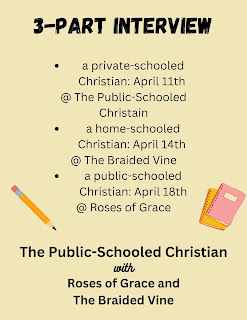The Story - Man Fails
Luscious green grass, and tree branches bent low from the weight of the perfectly smooth fruit hanging off them. Animals roam through the Garden, the lion together with the lamb. The man and the woman walk together with God, delighting in his presence, and he delights in theirs. The joy is palpable.
But the serpent is more crafty than any other beast of the field.
Our antagonist is introduced: the serpent. He goes to Eve, as she's alone in the grove one day, and begins to talk to her. He disguises his true intentions, talking to her as a friend—since she sees the other animals so much, and they're quite peaceful, she won't have any trouble believing him, yes? Nothing to be afraid of here.
The dramatic irony is strong. The serpent plants seeds of doubt into Eve's heart, and for the first time there's trouble in the Garden. "Did God actually say, 'You shall not eat of any tree in the garden?'" he asks. Eve truthfully answers that God only forbid the one tree, and that she and Adam would die if they ate it.
Now, the serpent lays his cards on the table, and begins to paint God as the villain. "You will not surely die," he says. "For God knows that when you eat of it your eyes will be opened, and you will be like God, knowing good and evil."
That's hard to resist, right? It's a temptation that nearly every character in the grand narrative of the world falls prey to. We want to know, and we hate it when knowledge is held from us—this story is true.
So Eve takes the fruit, seeking after wisdom. And she eats it. And she gives some to Adam, and he eats too.
And the first stroke has fallen.
Every plot has cause-and effect. Actions have consequences, and that's just realistic. So it should be no surprise that Eve and Adam's sin unfolds a huge slew of events right away.
They see that they're naked, so they clothe themselves. Yet another metaphor, this one about realizing guilt. And God looks for them in the Garden, but they hide themselves because of their shame.
It's a far cry from the walking together that they'd had just one chapter earlier. And this image brings us pain.
God finds them. You can't hide from God. And he asks them: who told you that you were naked?
Adam tries to shift the blame to Eve; Eve tries to shift the blame to the serpent. We're becoming more and more aware of the character flaws of these two, and it deepens the sorrow, because we see what we've lost. Instead of the innocence, the love, and the joy, we have shame, fear, and envy.
Now, God pronounces his judgement. And in doing so, he foreshadows an event that will take place, sometime in the future:
I will put enmity between you and the woman,
and between your offspring and her offspring;
he shall bruise your head,
and you shall bruise his heel.
There is a promise. The woman's offspring will one day crush the serpent that took everything from them—taking his just revenge. And it gives us hope.
But sin still has to be punished. And, in the most tragic of inciting incidents, the man and the woman are cast out of the Garden.
The conflict is high-stakes: eternal life or eternal death. It's personal: this is us. And it's true.
I say that this is a story. But it's not a myth. The serpent did tempt the woman, and Adam and Eve did both eat the fruit. Always remember that when you hear the stories in Genesis.
Hallelujah.
Because if the conflict is true, then (spoiler alert) the resolution is too. And the resolution, hinted at here, is going to be more glorious than any human mind could ever imagine.




This is a powerful explanation, Emma! I love how you emphasized hope and the promise in God’s words.
ReplyDeleteThank you! That's definitely my intention; what good is a story without hope, anyway?
Delete